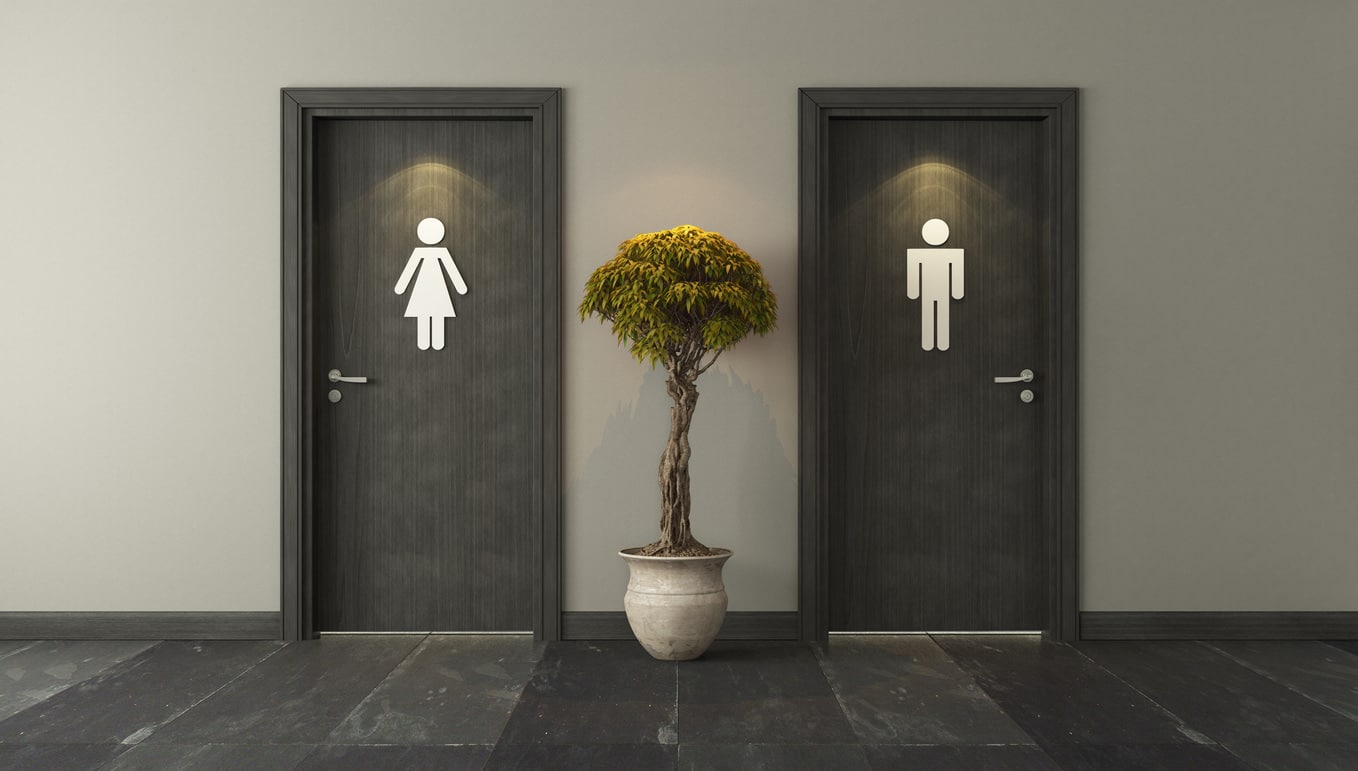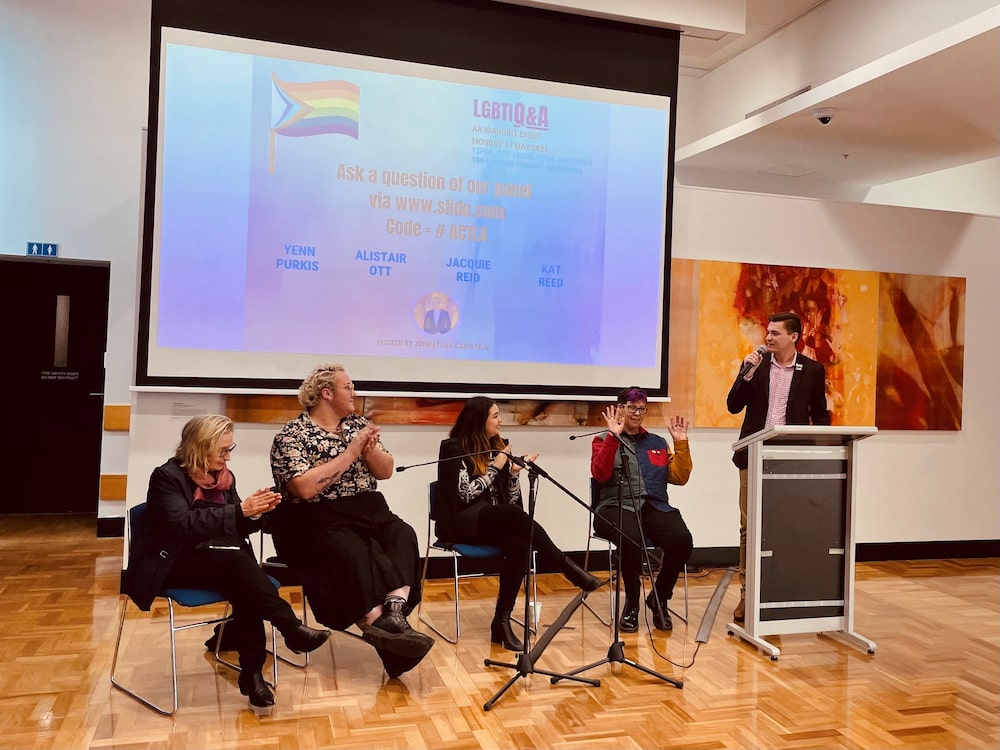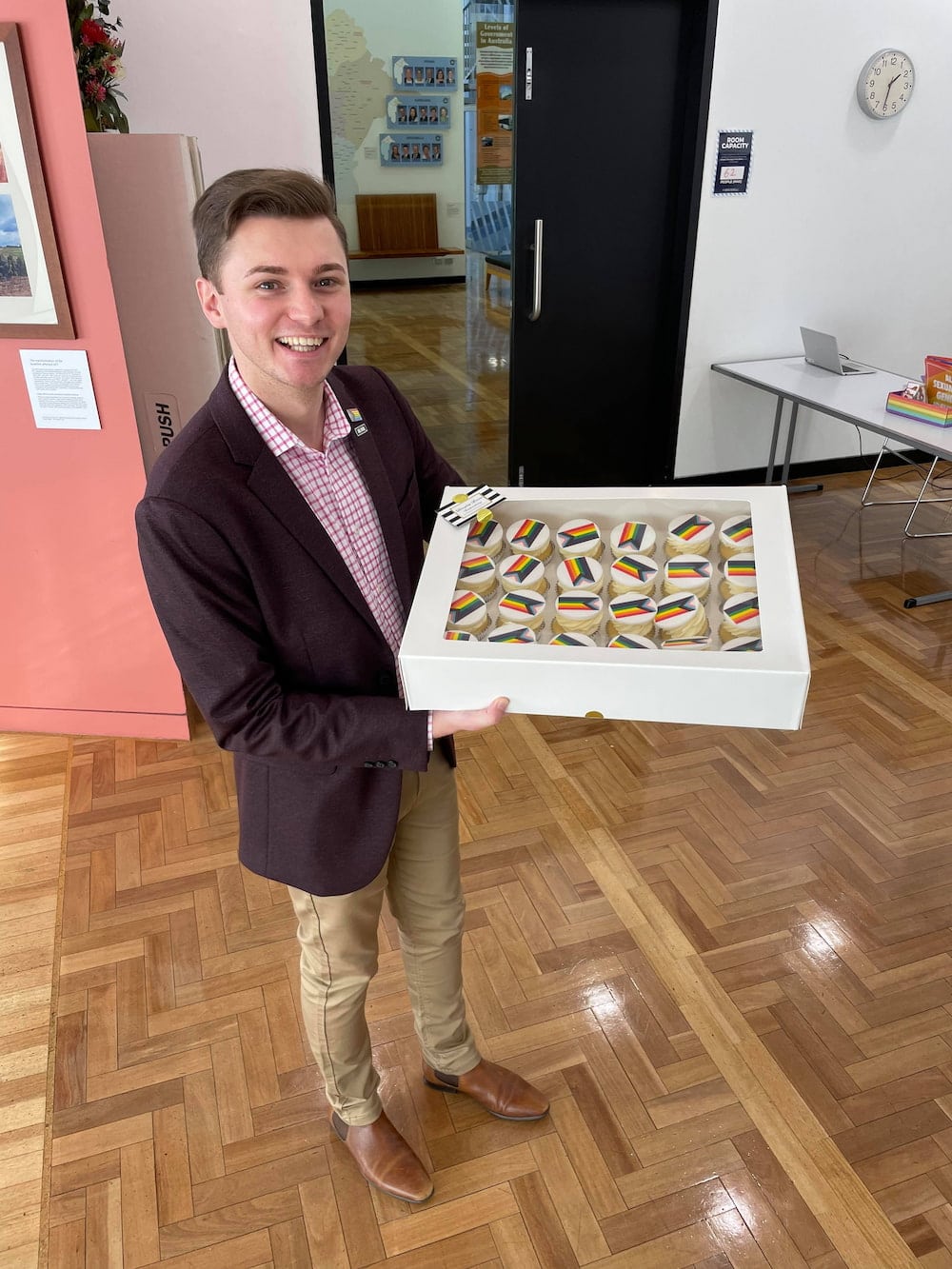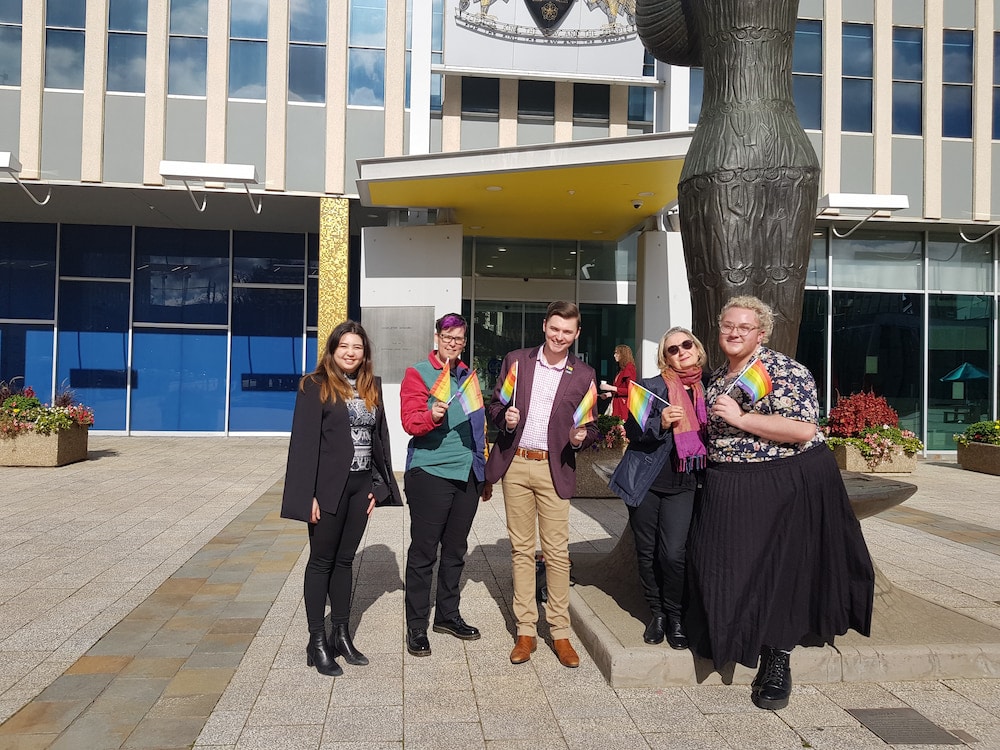Almost three decades after homosexuality stopped being considered a mental disorder, there still remains a lot of work to do, queer advocates say. At the Legislative Assembly yesterday (Monday, 17 May), a panel of gay and gender diverse Canberrans discussed some of the issues they face – and politicians have promised to do the reform work necessary.
Greens MLA Johnathan Davis had organised the LGBTIQ&A for the International Day Against Homophobia, Biphobia and Transphobia (IDAHOBIT), marking 31 years since the World Health Organisation removed homosexuality from the classification of diseases and related health problems.
“I chose to host an IDAHOBIT event here in the Assembly rather than out in the community because I wanted to create a way where queer people could introduce their ideas to decision-makers right here in the building,” said Mr Davis, Greens spokesperson for LGBTIQA+ affairs.
Members of all three ACT political parties attended the event. Earlier in the day, Chief Minister Andrew Barr raised the rainbow flag in Civic Square outside the Assembly.
The panel featured four prominent LGBTIQA+ members of the community. Yenn Purkis is an autistic, non-binary author, advocate, public speaker, and community leader. Jacquie Reid is a musician and performer involved in gender politics and gay liberation since the early 1970s. Alistair Ott is a Wiradjuri non-binary queer brother, studying queer theory at the University of Canberra and advocating for trans and gender-diverse communities. Kat Reed, 2021 Young Canberra Citizen of the Year, is CEO of Women with Disabilities ACT, an intersectional feminist, and a political performance artist.
According to LGBTIQ+ Health Australia’s 2021 snapshot, LGBTIQ+ people were more likely to attempt or consider suicide, or to experience and be diagnosed with mental illness, depression, anxiety, or psychological distress. Recent University of Melbourne research showed that 85% of transgender people suffered depression; almost half (43%) had attempted suicide; 35% were discriminated against at work; and they were three times more likely (19%) to be unemployed.
Bathrooms

Public bathrooms need to be made safer for non-binary people, panellists said. Separating the world into male and female, public bathrooms do not feel welcoming for people who identify as neither. They can also be dangerous; gender-diverse people have been attacked for using the ‘wrong’ bathroom. Gender-neutral bathrooms would solve many of these problems.
An American study by UCLA found that 70% of trans participants were verbally harassed or physically assaulted when using ‘gender-segregated’ toilets. Australia’s Sex Discrimination Act (2013) made it illegal to discriminate against people using a particular bathroom because of their gender identity, but panellists said it was a problem even in progressive Canberra.
“As a non-binary person, having no idea where to access a public bathroom where I’m safe,” said Mr Ott. “I’ve been harassed, I’ve been assaulted in public bathrooms.”
Mx Purkis agreed. “The bathroom issue is huge. People think it’s only a toilet, but if you can’t actually go to a toilet for fear of being attacked, that’s a fairly major issue.”
Many young gender diverse people will not access bathrooms; some will not even go to public areas or events because they do not feel safe, Mr Ott said.
Mr Davis said he would take this “particularly poignant” issue into the Assembly.
“It is something that cisgender people take for granted: the ability to use a public bathroom and get on with their day. It is so upsetting and scary to think there are Canberrans who have difficulty using basic services like a bathroom.”
Identity

Health services and bureaucrats need to better understand gender diversity, panellists believe.
Mx Purkis was were “utterly horrified” when a doctor’s referral identified them as a female who identified as binary gender.
“Wrong on three counts. I’m not female; I’m non-binary; I don’t identify as binary gender. I am non-binary gender. … There are people in this service who are transgender divergent as well, and they’re going through, presumably thinking everyone’s being inclusive – but that’s not inclusive.”
Bureaucratic forms should provide free-text boxes for people to identify gender (rather than Male/female/unspecified) and options for Mx or no title, Mx Purkis continued. On that note, Mx Reed said there needed to be greater implementation and acceptance of they/them pronouns and titles in workspaces.
“These things are practical, and they really need work because it’s just making trans and gender-divergent people limited in what we can do and how we can engage with the world, and we don’t want that,” said Mx Purkis.
Ms Reid said that residential aged care services needed to provide better accommodation services for older queer people. “They’re not necessarily aware of the need for community or for acceptance or for particular types of accommodation and ways of building community around LGBTIQA+ interest issues and people.”
Mr Ott wanted to prohibit and defer medical intervention on intersex infants – children born with naturally occurring variations that do not fit the typical definitions for male or female bodies, but who often receive surgery to assign them a particular sex.
“There needs to be more support and advocacy for intersex infants because they can’t advocate for themselves,” he said.
The ACT Discrimination Act had included intersex status since 2016, while the Capital of Equality project had identified intersex people faced distinct discrimination or access to competent and respectful services.
Following “powerful and impassioned pleas for reform” from the intersex lobby group, Mr Davis said he was liaising with both the LGBTIQ+ ministerial advisory council and the Chief Minister’s office to see where the government was taking that reform work, and how he could help.
Allies

The panel also discussed how people could be better allies for queer people. Listen; promote their rights; stand beside them and support them, Mx Purkis recommended. Don’t make it about yourself; don’t speak on behalf of somebody.
Mx Reed said the public should better understand intersectionality (how social categories such as race, class, and gender overlap to create discrimination or disadvantage).
“How these different experiences impact on someone and paints the whole picture of who they are today, what has led them to this point. It can neatly underpin a lot of your interactions with LGBTQ people, particularly people of colour.”
Be aware of the concept of privilege, Mx Purkis continued, e.g., white, cisgender, heterosexual, able-bodied, middle-class men have more privilege than other groups.
“It’s not wrong to be privileged, but you need to understand if you’re coming from a position of privilege.”
Mr Davis said he was committed to taking sexuality and transgender Canberrans’ voices into the Assembly and doing the reform work needed.
“You can trust that if there is an issue that pertains to sexuality and gender-diverse Canberrans, my office will be across it,” Mr Davis promised.
“Understanding and empathising with the different experiences people in the rainbow community have will hopefully make me a better advocate and a better legislator.”
For more news:
- Canberra revealed as most sustainable city in the world
- National Volunteer Week: Meet Canberra’s emergency services volunteers
- Rex announces $69 flights between CBR and MEL
- Local women’s and baby pantry offers a little bit of dignity
- Australia risks becoming a hermit nation. Here’s a five-step road-map to reopen our borders safely



